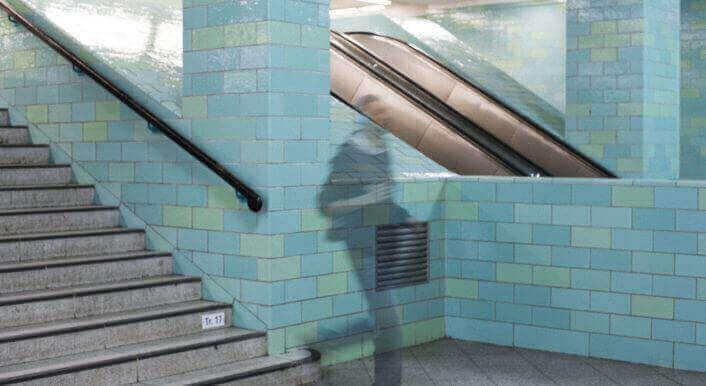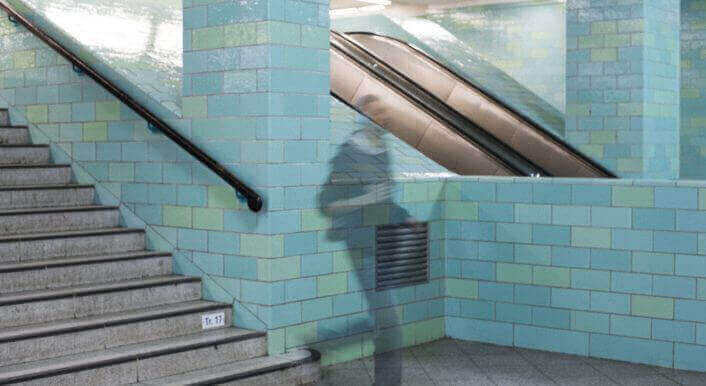The Failed Request for Asylum
If you request asylum in Germany you must be prepared to wait. First you register with the immigration authorities. Where are you from? Why are you seeking refuge in Germany? Then they decide whether you can stay – but that can take a long time. Half a year, a year, or longer. If they reject your application you have to leave the country. Follow the story of a young man from Pakistan who waited over two years for his decision.
You already have four sisters and two brothers when you are born in a small village in Pakistan. Three decades later you will say that you liked to play with the girls, with dolls and with make-up. You discovered your female side – that was probably one of the first signs.
You are thirteen when you fall in love for the first time. With a boy. You give him presents and it feels good when you kiss. Every day that you see him is better than the days when you do not. But you can only show your love secretly, in hiding, because that is not permitted at home in your village deep within Pakistan. Pakistan calls itself an „Islamic Republic“, open homosexuality is punishable with prison time. People have been talking about you since you played with dolls as a child; they taunt you, make fun of you.
In the following years you meet many men; most of them are significantly older than you and are family fathers. You have the happiest time of your life when one of them, a married man with children, moves to a new city for his job. He takes you with him and you work for him, cooking and cleaning, running the household while he sits in his office. You live like a couple, but rarely leave the house together. After three years he has to move back – and you, in your mid-20s, move back in with your parents while he returns to his family.
His wife finds out about you, along with his brother who calls and threatens to shoot you. You hear the same words again from your own brothers. You are scared. A friend urges you to leave the country to save your life. He puts you in contact with a man. You know nothing about him, only that he can bring you out of the country. You want to go to Canada. He wants over 20,000 Euros for that. For 14,000 he will bring you to Germany.
At the airport, on German territory, he takes away your passport and wishes you luck.
You do not know where to go, so you take a train into the city and sit down in a fast food restaurant. You understand that there is no going back. You cry. There you sit for hours. Then you see a man with brown skin, brown eyes and black hair, from the same part of Asia as you. You speak to him, tell him what happened and that without a passport you are afraid of the police. He offers you his couch and says that the German police will help you. So you go to the police station.
You are locked in a room and wait. At night they put you in a cell with a plank bed. The next day a policeman gives you an address and a train ticket to Berlin. The address is for the immigration authority. You tell your story with the help of an interpreter. The immigration official nods, says little, and when you leave she wishes you a good life in Germany. You learn a difficult German word: Aufenthaltsgestattung – residence permit. For the first three months you are not allowed to work, and after that you can only take a job if no German wants to have it.
You are assigned a room in an asylum seekers’ residence. They beat you up at night on two occasions. Because you are gay, the men shout at you. After months you are allowed to move into a safe apartment. The immigration authorities have extended your residence permit three times, but after two years you are still waiting for the decision on whether you can stay. The fear of being sent back to Pakistan keeps you up at night. Sometimes you think about taking too many of the sleeping pills you swallow every night.
No. A friend offers you a place in his apartment. One night, you close the door to your apartment for the last time and leave the house. You will never contact the authorities again. Now you know that the police will not help you.
Follow the third way to invisibility: you come to Germany to study.
You now count as illegal.
- You cannot work, only off the books, and you cannot make a legal claim for outstanding wages without revealing your identity.
- You have no health insurance and cannot buy any other type of insurance.
- You have no pension plan.
- It will be difficult to rent an apartment.
- You avoid any encounter with the police, authorities and people who could give you away.
- You cannot press charges against anyone.
- You do not receive any social welfare support.
- You are not allowed to vote.
Translation: Noah Walker-Crawford
Editor: Florian Bickmeyer
Design: Thorsten Franke, Simon Jockers, Ivo Mayr


